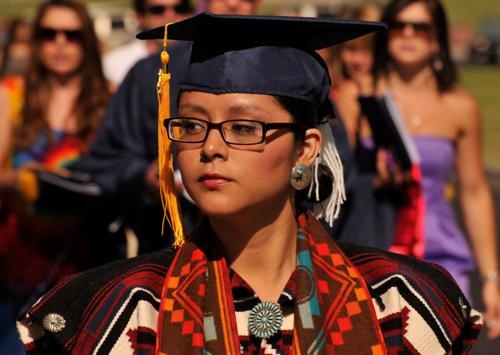Listen to New Voices on Studs Terkel our partnership with 826CHI-here! Read the Story
Showing 1 - 15 of 42 results
-
Wole Soyinka discusses the play "Death and the King's Horseman"
Oct. 11, 1979 Wole Soyinka discusses the play "Death and the King's Horseman." Includes passages from the play and Nigerian funeral music.
-
William Least Heat-Moon discusses his book "PrairyErth: (A Deep Map)"
Nov. 5, 1992 Discussing the book "Blue highways: a journey into America" with William Least Heat Moon.
-
William Hoffman, Jr. reads from and discusses his book "The Loser" ; part 2
1968 With the continuation of this interview, William Hoffman, Jr. talks about his experiences at the race track, his experiences when bouncing checks and his experience having spent one night in jail in Tijuana. With assistance from Gambler's Anonymous, Hoffman, started to write books and turn his life around, to become a winner.
-
William Hoffman, Jr. reads from and discusses his book "The Loser" ; part 1
1968 With this first part of the interview, William Hoffman, Jr. gives some background into his childhood and growing up, as well as some reasons why he felt the need to be successful at gambling.
-
Terry Jones discusses his books "Fairy Tales" and "The Saga of Eric the Viking"
Nov. 18, 1983 Discussing and reading from "Fairy Tales" and "The Saga of Eric the Viking" (both published by Schocken Press) with the author Terry Jones.
-
Sybil Leek discusses witchcraft and her book "The Jackdaw and the Witch: A True Fable"
1966 Sybil Leek discusses the history and beliefs of witchcraft, modern medicine compared to natural medicine, and animal familiars. "The Gloucester Witch" performed by John Allison has been removed.
-
Studs Terkel reflects on trip to People's Republic of China to describe Inner Mongolian music
Jun. 11, 1981 Studs Terkel travels to a Yurt shepherd's farm commune to hear the old song ballad of a Mongolian hero. It concerns a slave uprising from 200 years ago and shows the unity of the Mongolian people. Terkel compares this music to the Hungarian legacy before moving to the School of Story Telling and School of Music and Story Telling in the capital of Inner Mongolia, Hohhot. We are introduced to the four string hu that played Homeric ballads of drinking songs that could last four days.
-
Studs Terkel discusses writing and acting with John Schultz, Paul Pekin, and their students
1968 Studs discusses writing and acting with John Schultz, Paul Pekin, and six of their students: Alex Wayne, Linda Gilbert, Will Jackson, Dan Michalski, Bill Johnson, and Fred Game. The main topic of conversation is the "Story Workshop" method of teaching writing, which Schultz had recently developed and were leading at CAM (Christian Action Ministries) Academy in Chicago. The group discuss their history as teachers and writers, and they demonstrate some of the techniques they employ in their methodology. Some of the students also express the successes they have had in developing their writ
-
Studs Terkel discusses journalism and mass media with Norman Corwin
1968 Studs discusses poetry and mass media with American writer Norman Corwin, who was visiting Chicago to receive an honorary award from Columbia College. Works discussed include Corwin's radio address, "On A Note of Triumph," which the author delivered on May 8, 1945 to mark the end of World War II in Europe, and "Ballad for Americans", a cantata produced by Corwin on CBS radio in 1939. Topics include Corwin's personal and professional history, the process of writing "for the ear", World War II, the dawn of the nuclear age, and the television's role in eclipsing radio in popularity.
-
Stuart Dybek reads from and discusses his book "The Coast of Chicago"
May. 7, 1990 Hearing Chopin being played through the pipes of another apartment and a tale about a young girl who died and whose father froze her body in an ice house are among the stories in Stuart Dybek's book, "The Coast of Chicago." Dybek explained that although his stories may seem dream-like, he tries to come up up with stories from some place of reality.
-
Roger Buffalohead Native American educator, scholar and activist talks about Native American history and education
Nov. 15, 1971 Mr Buffalohead a Native American educator, scholar and activist talks to Studs in Minnesota about Native American history and about creating space at universities for Native / Indigenous studies programs. At the end Studs states that there is another 15 minutes of the program, that will be presented at another time.
-
Robertson Davies discusses his new book "The Manticore"
Oct. 24, 1972 Canadian journalist and novelist Robertson Davies discusses his new book, the second installment in "The Deptford Trilogy" titled "The Manticore." Much of the discussion also focuses on the prequel, titled "Fifth Business."
-
Ralph Ellison discusses music
Jun. 18, 1992 The blues and jazz are topics covered by Ralph Ellison. Ellison himself started to play the trumpet at the age of seven. Ellison said for him, when hearing classical music, he then had to go and find classical literature.
-
Norman Maclean reads from and discusses his book "A River Runs Through It"
Jun. 8, 1976 Fly fishing, relationships and people Norman Maclean has met are all apart of his book, "A River Runs Through It." Maclean's father taught Maclean and his brother the art of fly fishing. Maclean's book is semi-autobiographical with three short stories.
-
Norbert Blei reads from and discusses his book "Chi-Town"
Oct. 19, 1990 When talking about his book, "Chi-Town," Norbert Blei said all the communities in Chicago offer everyone the groups' separate ethnic cultures. Blei also talks about riding the Douglass Park El and the old man sitting on a bench, who he encounters at Grant Park. Lastly, Blei talks about writers who have influenced him.



